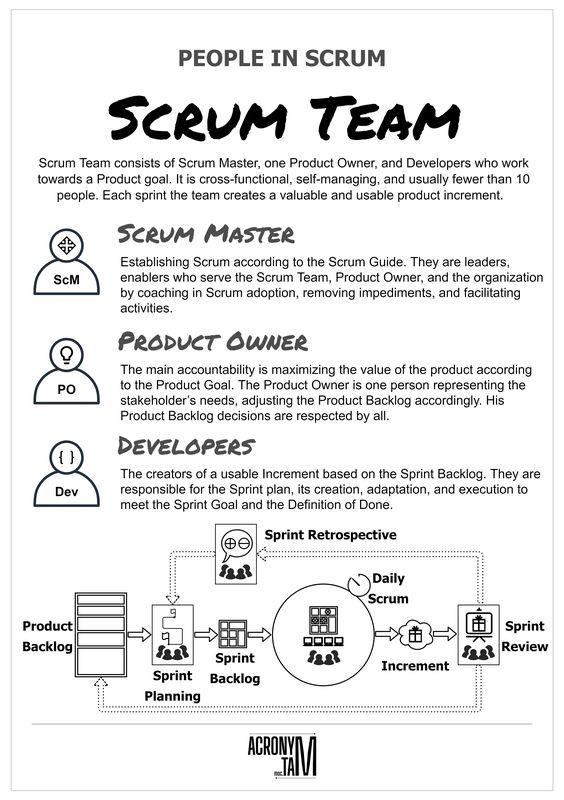If you’re a project manager or software developer, chances are you’ve heard of Scrum. It’s an agile way of managing projects that is focused on delivering value early and often. In this guide, we’ll break down what Scrum is, how it works, and why it’s so effective.
Overview of Scrum
Scrum is a framework for managing projects that was first introduced in the early 1990s. It’s based on the principles of agile development, which prioritize delivering working software quickly and responding to change over following a strict plan. Scrum is designed to be flexible, iterative, and collaborative.
Key Roles in Scrum
There are three main roles in Scrum: the product owner, the Scrum Master, and the development team. The product owner is responsible for defining the product backlog and prioritizing the work. The Scrum Master is responsible for ensuring that the Scrum process is being followed correctly. The development team is responsible for designing, developing, and testing the product.
Scrum Artifacts
Scrum uses three main artifacts to manage projects: the product backlog, sprint backlog, and increment. The product backlog is a list of all the features and tasks that need to be completed for the product. The sprint backlog is a list of features and tasks that will be completed during the current sprint. The increment is the working product that is delivered at the end of each sprint.
Scrum Ceremonies
Scrum has four main ceremonies: sprint planning, daily stand-up, sprint review, and sprint retrospective. Sprint planning is when the team decides on the work that will be done during the next sprint. Daily stand-up is a daily meeting where the team members update each other on their progress. Sprint review is a meeting where the team demonstrates the product that was developed in the current sprint. Sprint retrospective is a meeting where the team reflects on the last sprint and looks for ways to improve the process.
Benefits of Scrum
Scrum allows for faster delivery of working software, improved collaboration, and increased flexibility. By breaking projects down into smaller, manageable chunks, stakeholders can see the progress being made on a regular basis. Scrum also encourages team members to work together and share knowledge, which can lead to better solutions.
Implementing Scrum
To implement Scrum properly, it’s important to have a dedicated Scrum Master who can ensure that the team is following the process correctly. The product owner should also be knowledgeable about the product and have a clear understanding of the priorities. It’s also important to establish clear communication channels and to be flexible and open to change.
Common Scrum Mistakes
There are several common mistakes that teams make when implementing Scrum. These include not adhering to the Scrum process, not having a dedicated Scrum Master, and not understanding the role of the product owner. It’s important to be aware of these mistakes and to take steps to avoid them.
You might find these FREE courses useful
- Scrum Master Certification Practice
- Modalidades organizacionales ágiles en base a la MetodologÃa Scrum
- Scrum Master Certification: Scaling Agile and the Team-of-Teams
- Scrum Master Certification: Scrum Methodologies
Conclusion
Scrum is a powerful framework for managing projects that can lead to faster delivery of working software, improved collaboration, and increased flexibility. By following the process and understanding the roles and artifacts involved, teams can effectively implement Scrum and realize its benefits. Avoiding common mistakes is also key to successful Scrum implementation.
